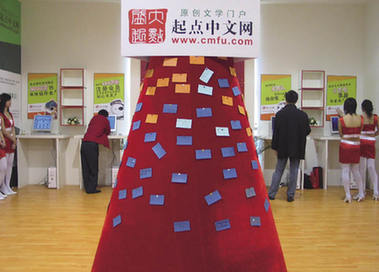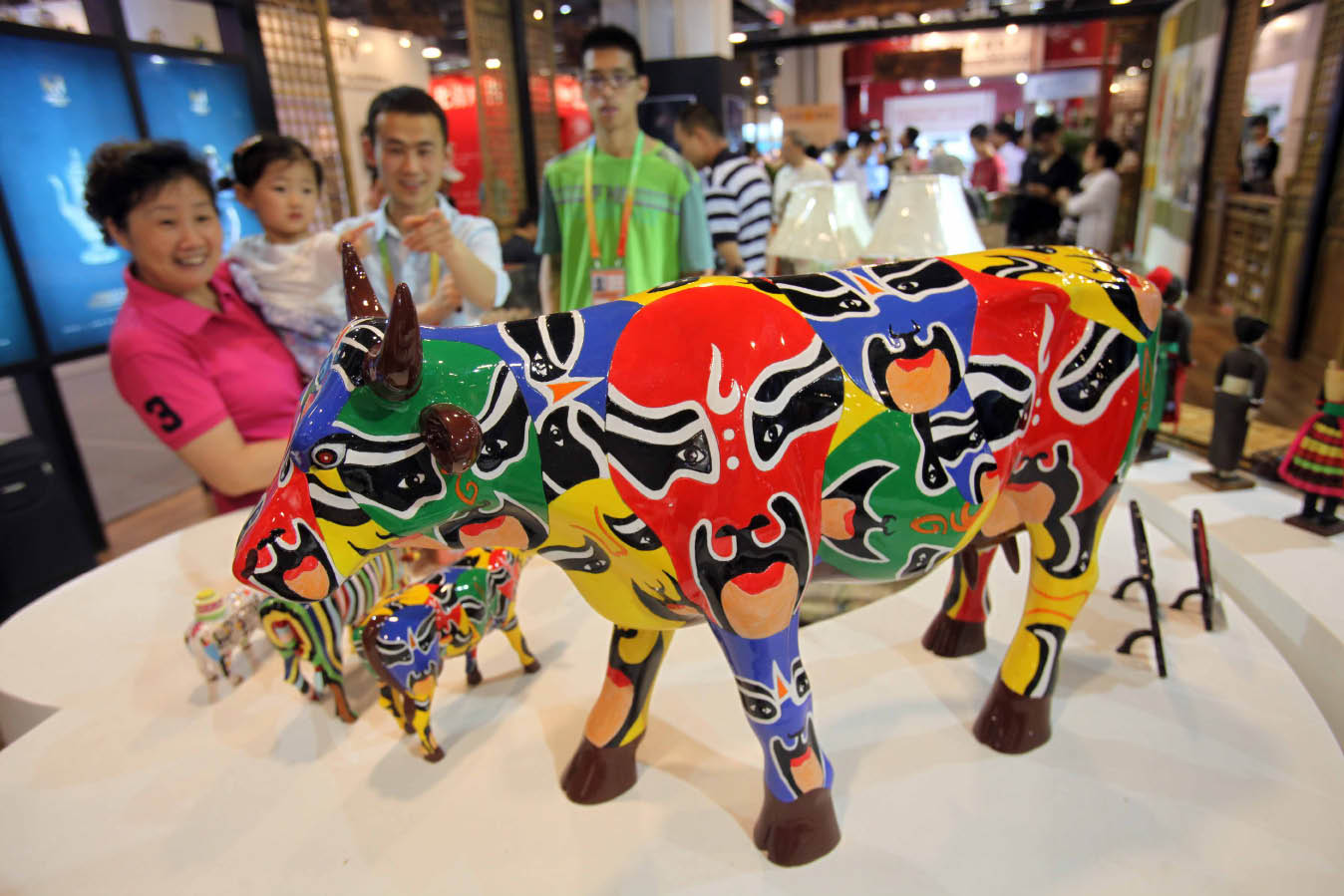Writers on the Web
By staff reporter ZHANG XIWEN
Writing on the Internet is the new route to fame and riches. But is it art?
BOREDOM drove 25-year-old Li Nan to her new career as Internet novelist. She began writing kungfu fiction online six months ago to fill in ample spare time after resigning her job as website editor. "I wrote because I had nothing much else to do. I've since signed a contract with www.qidian.com. I originally intended to write romances and the odd kungfu novel, but the editors at qidian.com thought the other way around would be better," Li says. Her workload, at around 1,000-2,000 words a day, provides a modest income, but as she says, "It's enough to make a living."
Literary websites, BBS and blogs offer diverse channels to write and publish online. Eighty percent of China's 253 million netizens now write online, according to the National Bureau of Statistics.
"Before the Internet, writers who couldn't get published simply stored their works in a drawer. But the Internet acts as a public drawer," independent publisher Ye Kuangzheng states.
 |
|
China’s largest original literature website www.qidian.com boasts a large number of web writers. |
A web writer calling himself "Sad Cat," born in the 1980s, has been writing online in his spare time for more than three years. His web novel, recounting a personal affair of the heart, was published in October 2006 by the highly reputed Writers Publishing House. "People my age like writing online because it provides the opportunity to abreact. Dogma is obsolete in 21st century literature. As we don't expect our works to fulfill anyone's expectations, grassroots online writers actually enrich literature," is Sad Cat's view.
Web fiction has made rapid strides on the Chinese mainland in the nine years since The First Intimate Contact by Cai Zhiheng of Taiwan became popular. There is now a select group of young Internet writers whose works are consistent best-sellers. Web fiction, encompassing fantasy, horror, sport, action, city life and cyber games, has advanced the boundaries of traditional fiction and expanded China's literary fields. It has superseded literary journals such as Harvest and October that formerly acted as a showcase for young writers. Many literary critics believe that the Internet era marks the ascendance of web authors and the decline of works traditionally regarded as literature.
"As traditional fiction no longer meet readers' diverse demands, in view of the fast-moving backdrop of social development, its appeal is fading," is the opinion of one Internet writer. "Also, in contrast to so-called serious writers, I regard writing as a pursuit to be enjoyed, rather than a vocation, and feel no obligation to imbue my works with social significance or a sense of responsibility."
Net literature falls under the two broad headings of autobiography and fantasy/horror. The former expresses youthful rebellion against convention and authority and general discontent with life. Zhao Ganlü's Elevator Encounter, which begins in a malfunctioning elevator where the eponymous hero and his beautiful female colleague are temporarily stranded and tells the tale of their eventful romance, is representative of the genre. The novel scored an impressive 100 million hits on the net.
An example of a fantasy/horror web hit is the Ghost Blows Out the Light, which is about tomb robbers and combines fact, fiction and suspense. It was hugely popular in 2007.
Professor Zhang Yiwu attributes the success of Internet fiction to the youth of both its writers and readership. Generally born in the 1980s when the opening and reform policy was in process, the oldest are now around 30 and the youngest are university students. All are in a pivotal phase of life and constitute a main social group. They are less inhibited than their senior generation about expressing overt reactions to pressure, and constitute a main social influence in their role as both producers and consumers of the cultural industry. Globalization, the Internet and the market economy have brought this generation a hitherto undreamt of breadth of vision, choice and brand-new concepts, all of which generate a positive attitude to the future. These factors give China's 80s generation, who grew up during the country's most affluent era, a distinct cultural character.
The operational mode of "creating online and publishing in print" impels the development and amplifies the impact of Internet fiction. Successful Internet novels in turn constitute a thriving commercial operation that simultaneously promotes writers' reputations. Relying on the popularity of a book or author makes print publishing a risky industry and consequently less attractive than Internet fiction.

